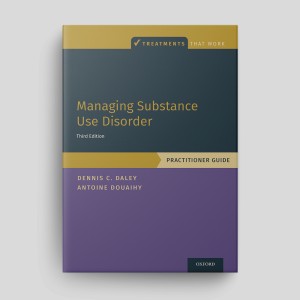Conditioning (Classical and Operant)
Learning theories propose that behaviors (B) are controlled by their context. Context arising before an instance of the behavior is described as the antecedents (A), and context occurring after the instance of a behavior are described as the consequences (C). Behaviors can be voluntary (e.g., escaping from a situation) or might be involuntary (e.g., an increase in heart rate), or they can be thoughts, emotions, or mental events (e.g., counting in my mind as a form of distraction).
Three major learning theories of relevance to therapists are:
operant conditioning describes operant behavior which is controlled by consequences;
respondent conditioning (also called classical conditioning or Pavlovian conditioning) describes respondent behavior that is controlled by antecedents;
observational learning (vicarious learning) is defined as behavior that results from watching someone else’s behavior be rewarded or punished.
Showing 1 to 13 of 13 results
Understanding Fears And Phobias
Understanding Fears And Phobias
Managing Substance Use Disorder (Third Edition): Practitioner Guide
Managing Substance Use Disorder (Third Edition): Practitioner Guide
Maximizing The Effectiveness Of Exposure Therapy
Maximizing The Effectiveness Of Exposure Therapy
Process Focused Case Formulation
Process Focused Case Formulation
Coercive Methods For Enforcing Compliance
Coercive Methods For Enforcing Compliance
Links to external resources
Psychology Tools makes every effort to check external links and review their content. However, we are not responsible for the quality or content of external links and cannot guarantee that these links will work all of the time.
Information (Professional)
- What are positive strategies for supporting behavior improvement? | Autism Speaks | 2012
- Use of reinforcement in behavior management strategies | Wright, Cook, Morton
Presentations
- Decreasing problematic behavior through schedules of reinforcement | Fouché
Treatment Guide
- Evidence-based practices for improving challenging behaviors of students with severe disabilities | Westling | 2015
Recommended Reading
- Rachman, S. (1977). The conditioning theory of fear acquisition: a critical examination. Behaviour Research and Therapy, 15, 375-387
What Is Conditioning?
Disorders That May Be Maintained by Conditioning
Behavioral approaches can be used to understand behavioral components of every condition.Helpful Questions for Assessing Conditioning
Functional analysis is the traditional way of assessing the antecedents and consequences associated with a behavior.Questions to investigate context/antecedents:When did the behavior occur?
What were you doing?
Who were you with?
What were you feeling emotionally just before you acted that way?
What body sensations were you aware of?
What were you saying to yourself?
What were you doing?
What feelings were you having?
What thoughts were you having?
What were you saying to yourself?
What happened after you acted that way?
How did you feel? What emotions did you feel?
How did other people respond?
What effect did that have on the chances of this situation happening again?
Treatment Approaches Related to Conditioning
Treatment approaches stemming from a behavioral/conditioning approach might include:making changes to the antecedents/setting conditions. For example, if a patient with trichotillomania pulls her hair more when she is alone in her room she might be encouraged to seek company, spend less time alone;
changing the contingencies. For example, if a child has a temper tantrum that results in him getting his own way, his parents might be encouraged to respond to the tantrum by removing their attention, and no longer reinforcing the tantrum behavior. If the conditioned stimulus (CS) is repeatedly presented without the unconditioned stimulus (UCS) the behavior is extinguished;
counterconditioning is a technique which is used in aversion therapy. In counterconditioning a CS is paired to a UCS that elicits a new response which is incompatible with the old one.
References
Persons, J. B. (2008). The case formulation approach to cognitive-behavior therapy. New York: Guilford Press.












